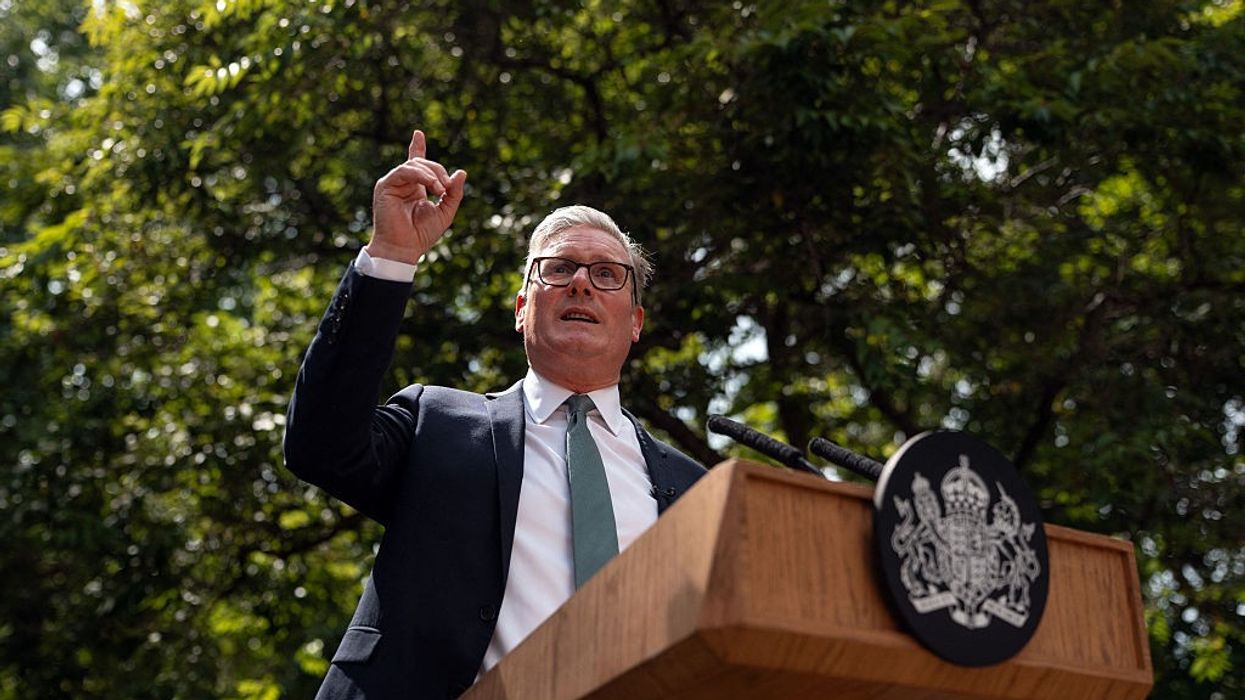PRIME MINISTER Keir Starmer faced the most serious test of his leadership on Tuesday (1) as his government’s flagship welfare reforms came under fierce attack from within his own party.
The day was marked by emotional speeches, last-minute concessions, and a deep sense of division among Labour MPs, many of whom said the proposed changes would push vulnerable people into poverty
The atmosphere in the House of Commons as tense, with about 50 Labour MPs expected to vote against the bill, reported The Times.
The government, aware of the scale of the rebellion, was reportedly considering further concessions, including delaying the most controversial measures until after a full review of the welfare system.
One of the most contentious points was the introduction of a four-point threshold for Personal Independence Payment (PIP) eligibility, which critics said would deny help to those unable to wash or dress below the waist from November 2026
Marie Tidball, one of the only MPs with a visible physical disability, delivered a moving speech, saying, “It is with a broken heart that I will be voting against this bill today. As a matter of conscience, I need my constituents to know I cannot support the proposed changes to PIP as currently drafted. Low-level support like PIP helps disabled people, keeping us out of the dark corners of hospitals, prisons and social care settings.”
She warned that the changes could put about 150,000 people into poverty.
Apsana Begum, MP for Poplar and Limehouse, has announced she will vote against the bill, citing deep concerns about its impact on disabled people.

Begum said, “When it comes to people’s lives and wellbeing, there can be no compromise. Politics should serve people – not the other way around.” She criticised the planned £3.5 billion cuts to disability benefits, calling them unacceptable.
The MP expressed strong opposition to what she described as a “two-tier system” that would force disabled people into greater hardship.
Begum also pointed out the anxiety felt by disabled constituents in her area, who have already endured years of austerity and hardship. “I say to them: I am with you,” she declared.
She also condemned other welfare measures such as the two-child limit and the “poisonous narrative” that blames people for their poverty. “My constituents voted for an end to austerity. They want a welfare system that supports people, not one that pushes into poverty,” Begum said.
“That’s why I’m voting against this cruel Disability Benefit Cuts bill”
Rebecca Long Bailey, a former Labour leadership contender, echoed these concerns. She said the planned cuts “will still push hundreds of thousands of vulnerable sick and disabled people into poverty,” adding that “existing claimants will live in fear that if the situation changes and they are reassessed, they could lose everything under the new system.”
Long Bailey criticised the government for rushing the bill through without proper consultation, warning that it would worsen human rights violations already highlighted by the United Nations
Dame Meg Hillier, who had initially led efforts to block the bill, withdrew her amendment after the government agreed to a “staggered approach.”
She told the Commons, “Divided parties do not hold power or government. If we want to power our government, if we want to see our values in this country, we have to vote for this today.” Yet she admitted that “there is still a lot to be done” to protect disabled people and those seeking work
Meanwhile, the government’s climbdown last week was prompted by a major revolt from Labour MPs who argued the original proposals went too far. More than 120 MPs had signalled their willingness to rebel, forcing ministers to water down the changes.
The new plan means the stricter criteria for sickness and disability benefits will only apply to new claimants, not those already receiving support
Secretary of state for work and pensions, Liz Kendall, presented the revised bill to parliament, but newly released government data estimated that even the watered-down reforms could push an extra 150,000 people into poverty.
This left some Labour MPs still reluctant to back the bill, with backbenchers exposing “so many holes in the government’s plans,” as one put it
Business secretary Jonathan Reynolds told Times Radio, “We’re all trying to find a way to protect the most vulnerable people and get people back into work if they need it,” defending the government’s approach.
However, Tory leader Kemi Badenoch rejected the bill outright, calling it “a fudge” and saying, “A fundamental and serious programme to reform our welfare system is required, and this bill is not it."
(with inputs from AFP)





